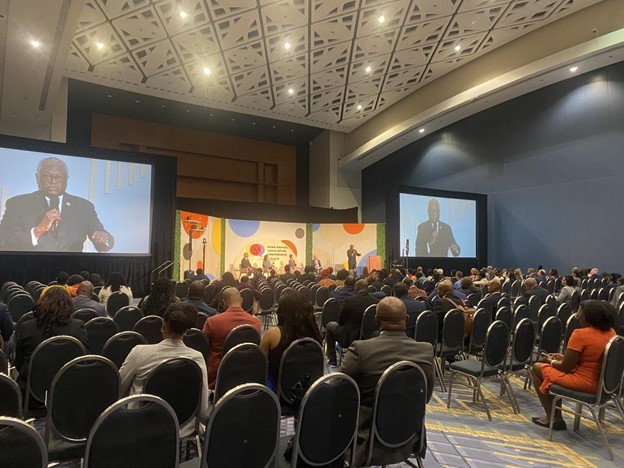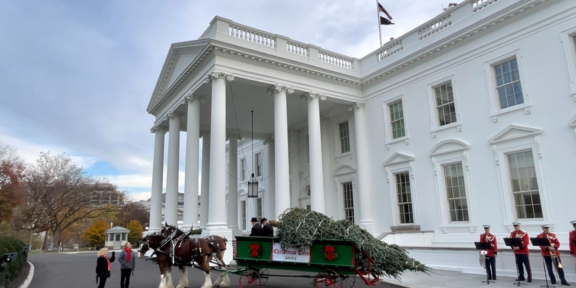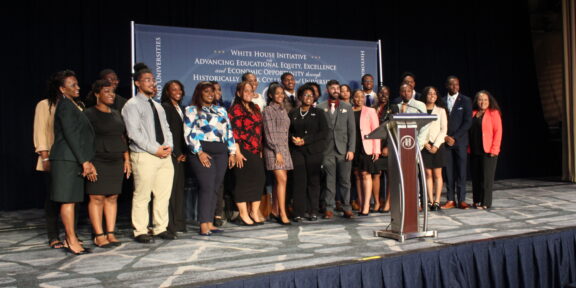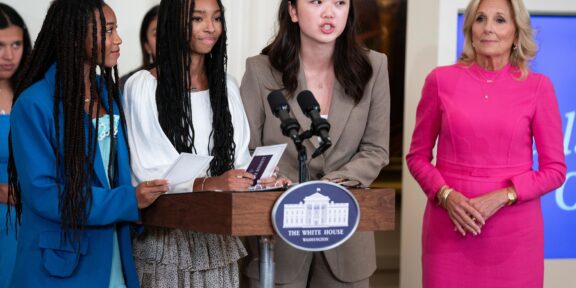By Asha Taylor
Howard University News Service
Nuclear power experts discussed plans for cleaner energy, waste reduction and a more diverse industry during a panel hosted by U.S. Rep. James Clyburn at the 52nd annual Congressional Black Caucus Foundation legislative conference.
“Many, many states are finally waking up to the fact that they are going to need more energy,” said Ellen C. Ginsberg, senior vice president of the Nuclear Energy Institute, during the “Environmental Justice Braintrust: Advancing Equity and Nuclear Power in a Carbon-Free Future” last Friday at the Washington Convention Center.
The global decline of non-renewable energy sources and the overall advancements in small molecular reactors (SMRs) throughout the United States have forced the Biden-Harris Administration to address more methods of conserving energy.
SMRs have been seen to be smaller, more compact and faster for the process of nuclearization. This has left panelists to believe that it will be a good widespread method for the future of the nation, opening the field for more career possibilities.
In addition to Ginsberg, the panel consisted of David Wright, commissioner of the U.S. Nuclear Regulatory Commission (NRC); Jessica Lovering, executive director and co-founder of the Good Energy Collective; and Preston Gillespie, executive vice president at Duke Energy Corp., with Clyburn, the Assistant Democratic Leader of the U.S. House of Representatives, as the moderator.
“The key advantage that a nuclear power plant has is that we get to interact with the communities,” Gillespie said.
He detailed the opportunities that nuclear power plants offer through providing thousands of jobs for people to engage, encourage and advance progress in their communities. The panelists maintained a focus on community improvements, specifically within Black communities. Many of their proposals for the future included workplace inclusion, increased environmental education and waste reduction.
Gillespie also explained that Duke aims to have a diversified staff. “We go fishing the ponds where we can get all different types of people with talent,” he said. “We work hard to work with minority business owners, contractors, alike.”
Clyburn asked the panelists and audience to consider means of increasing the participation of students from Historically Black Colleges and Universities. Many HBCU graduates in the audience said that benefits in workplace diversity would come from increased opportunities advertised to students.
Wright responded by discussing the expanded needs of the nuclear industry.
“One of the things that I find encouraging is the number of people that we need that have non-nuclear backgrounds,” the NRC commissioner said.
Panelists said that educating students in elementary and middle schools about environmental justice as well as opportunities in the environmental and energy industries would benefit younger generations of Americans. The goals of community involvement and waste reduction rely on the incoming generation of environmentalists, scientists and accountants, among others.
Ginsberg commented on her experiences in entering the previously male-dominated field. As a liaison for women in nuclear, she expressed having to be “two feet into the hole” before she started to pave a way into her career path. Ginsberg advised the industry to make room for both women and people of color to pursue careers in environmental realms.
“We really need to make sure that we get the pipeline primed,” Ginsberg said.
Lovering spoke in support of the increase in efforts to educate the public.
“I think something that is really important about nuclear is the balance between what it takes and what it benefits,” she said.
The panel encouraged students to latch on to the job and financial sustainability that the environmental and nuclear energy fields hold, as the government continues to support initiatives for cleaner energy. All speakers emphasized bringing passion to enhance the environment.
Asha Taylor covers environmental and climate change issues for HUNewsService.com.













